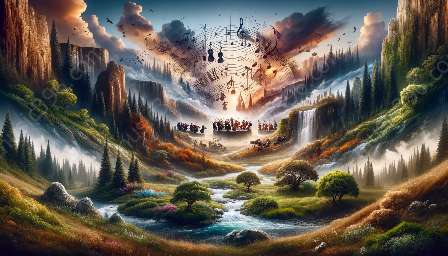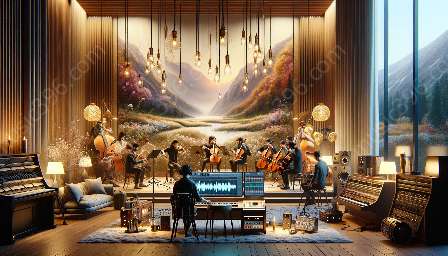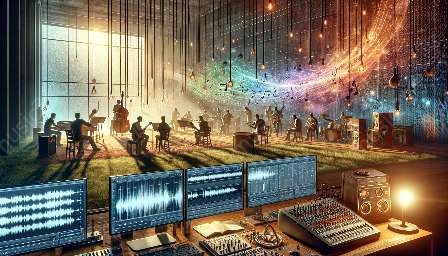Film and television scores have a profound impact on audience perceptions and emotions. The analysis of these scores and their effect on viewers provides valuable insights into the psychological and emotional aspects of music. In this comprehensive topic cluster, we will delve into the relationship between scores, psychological responses, and music analysis.
Understanding the Influence of Scores
Film and television scores play a crucial role in shaping the emotional landscape of a story. They have the power to influence audience perceptions, trigger specific emotions, and enhance storytelling. Through careful analysis, we can uncover the intricate techniques used by composers to create these effects.
Emotional Engagement
One of the primary psychological effects of scores is their ability to engage and evoke emotions in viewers. Music has the potential to create a powerful emotional connection, amplifying the impact of visual storytelling. Understanding the mechanisms through which scores achieve this emotional engagement is essential for analyzing their psychological effects.
Perception and Interpretation
The psychological impact of film and television scores also extends to audience perception and interpretation. Scores can influence the way viewers perceive scenes, characters, and events, ultimately shaping their emotional responses. By examining the interplay between music and visual cues, we can gain deeper insights into how scores impact perception and interpretation.
Analyzing Psychological Elements
Music analysis provides a valuable framework for exploring the psychological effects of scores. By dissecting the compositional elements, thematic motifs, and tonal structures, we can uncover the underlying psychological mechanisms at play. This analytical approach allows us to understand how specific musical choices contribute to emotional and psychological resonance.
Sound and Emotion
Sound has a profound impact on human emotions, and film and television scores leverage this connection to enhance storytelling. Through music analysis, we can deconstruct the ways in which various sonic elements, such as instrumentation, dynamics, and harmonic progressions, elicit emotional responses in audiences.
Psychological Symbolism and Narrative Arc
Composers use music as a tool for conveying psychological symbolism and reinforcing narrative arcs. The analysis of how scores align with character development, plot progression, and thematic resonance offers valuable insights into the psychological underpinnings of storytelling. Understanding these symbolic and narrative elements is essential for comprehending the emotional impact of scores.
Impact on Audience Experience
The emotional and psychological effects of scores directly influence the audience experience. By examining how scores shape audience perceptions, emotional responses, and overall engagement with a story, we can gain a deeper understanding of their impact. This holistic assessment considers the interplay between music, psychology, and audience reception.
Psychological Immersion and Suspension of Disbelief
Scores contribute significantly to the psychological immersion of audiences in a storyline. Through music analysis, we can explore how scores facilitate the suspension of disbelief, enabling viewers to emotionally invest in the narrative world. Understanding the psychological effects of this immersive experience is integral to comprehending the holistic impact of scores on audience engagement.
Long-lasting Emotional Resonance
Well-crafted scores have the potential to leave a lasting emotional imprint on audiences. By recognizing the psychological mechanisms that contribute to this enduring resonance, we can gain insights into the transformative power of film and television scores. Music analysis illuminates the intricate details that underpin the longevity of emotional impact.

































